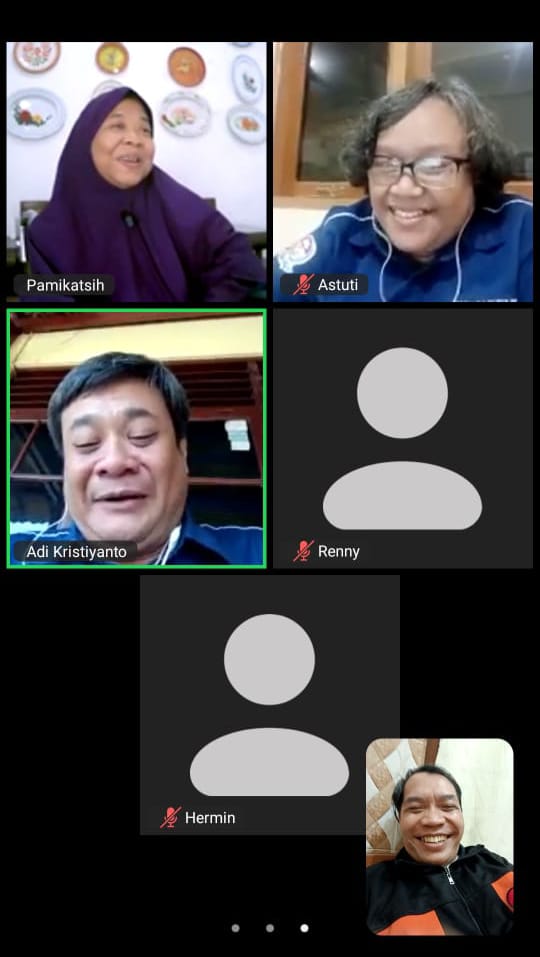Reproductive health education for elementary school students and Islamic school is critical to give students knowledge and skills in reproductive health, so that they are able to make right decision and to take responsibility over their reproductive health.
An obstetrician and gynecologist, Dr. dr. Eti Poncorini Pamungkasari, Sp.OG(K) says that it is critical to provide reproductive health education eary in children’s life, in order to instill awareness about reproductive health, and to allow them to have the knowledge to take care of their reproductive health, to prevent reproductive health problems that may arise out of ignorance and lack of knowledge and/or skill, and to increase children’s self-confidence to make right decision regarding their reproductive health.
The method to teach reproductive health should be fun and interactive, using interactive media such as videos, pictures, and games. It should also use relevant examples in children’s daily lives, and teaches vital life skills, such as effective communication and right decision making.
Story about Reproductive Health Education Facility at Madrasah Ibtidaiyah (MI) Miftahul Huda
That morning, Afi, Ame, Fios and another friend wait for the end of the break and start to learn new things – reproductive health – with students in two other classes.
A number of students confide that they already get the information about reproductive health from one of the teachers, but not comprehensive enough. They feel enthusiastic to hear the school head announce that they will have friends from Yayasan YAPHI to talk about reproductive health.
This time, there will be different classes for boys and girls – classes 4, 5 and 6 – where they occupy different spaces in the same room. Classes 2 and 3 will be merged but they will occupy different spaces. Students from class 1 will also occupy a different room.
In class 1, facilitator - Renny and Adi – talk about the functions of body parts and what students need to know about their body and what parts of the body can be exposed and touched by mother, and which ones should be kept private. They also teach how to clean their body, by taking a bath, using toilet and cleaning reproductive organs correctly. The lesson uses games, image and active interaction.
In another class, facilitators from Yaphi - Aster, Tika and Nisa – provide reproductive health lessons using videos, active interaction, songs, and hand claps "Totelala".
Lessons for girls in Classes 4, 5 and 6
The lesson starts at 9.45 and ends at 11.00 involving 31 students. The facilitator and mentor – Dunung – is tasked with providing the lesson on reproductive health.
The lesson starts with a question – whether any students has experienced menstruation, and a number of students say yes. Dunung then plays a video n reproductive health and puberty, and changes and symptoms in girls that already pass the puberty period. The lesson on menstruation comes with information on how to clean reproductive organ, and how to use tampons made in factories or tampon made out of cloth.
The lesson continues with the proper way to clean sensitive area. It also talks about what parts of the body that can and cannot be touched by other people in order to prevent sexual violence, and then at the end of it a "Totelala" handclap.
After the video ends, the facilitator offers a review by asking a question about what is puberty, what are the signs of puberty in girls, how to maintain clean reproductive organs and the length of menstruation cycle, and how to clean girl sensitive area, and by the end of it she asks the students what body part can and cannot be touch by other people.
Joint evaluation with the School after the Lesson
A facilitator, Yosi who is responsible for classes 4, 5, and 6 says during an evaluation with the school that all students are enthusiastic to learn. He and another facilitator, Handharu start with games in all classes. Then they explain about how to take a bath and introduce media with pictures of a variety of toilet types.
The facilitator then explains about reproductive health and why it is important for the students. “There is intense discussion as children cite terms they learn from the social media. We then ask students to be careful when they open social media.”
Facilitators talk about wet dreams, and importantly also about bullying that could potentially damage reproductive organ. Bullying is very dangerous when it involved the genitalia.
The facilitators also explain about the animation pictures of male organs which student may have seen in social media, and remind students not to watch pornographic contents in social media, because watching it may cause damage to the brain. (Ast)












